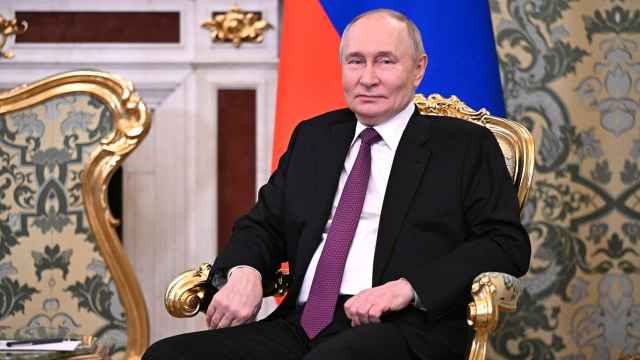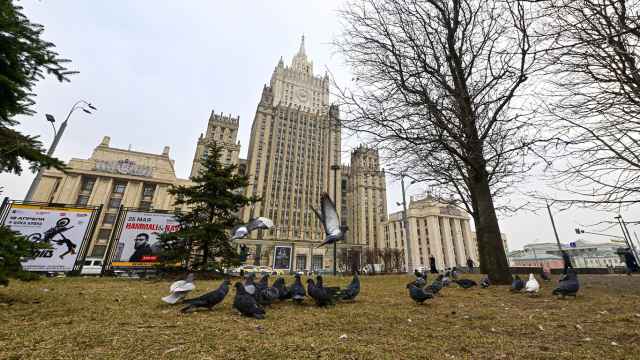Scientific tests show Palestinian leader Yasser Arafat died of natural causes, not of radioactive poisoning, and there is no need to examine his remains again, a top Russian official said.
"The tests were comprehensive and there's no need for re-examination. This person died of natural causes, not because of radioactive poisoning," the head of Federal Medico-Biological Agency, or FMBA, Vladimir Uiba, told reporters on Thursday.
The Palestinian leader died in a French military hospital in 2004, shortly after falling ill at his West Bank compound. Palestinians have long suspected Israel of having poisoned him with radioactive polonium, but Israel has consistently denied such accusations.
A spokesman for the Israeli Interior Ministry, Yigal Palmor, expressed hope that the findings by Russian and French experts would "end these groundless accusations and mad conspiracy theories similar to the polonium saga."
Arafat's widow Suha sought an investigation into his death in France. The inquiry, also requested by Palestinian leader Mahmoud Abbas, followed an investigation by Al-Jazeera television earlier this year that found "significant" traces of polonium-210 on some of Arafat's personal items that were given to his widow after his death in 2004.
The remains were exhumed and tested by Russian, French and Swiss scientists.
A Swiss lab concluded earlier that polonium poisoning was still a possible cause of death, but French scientists disagreed.
The head of a Russian forensics bureau said last month in a report quoted by Al Jazeera that it had found no conclusive sign of polonium in Arafat's body, but other scientists quoted by the channel cast doubt upon the Russian bureau's methodology.
A Message from The Moscow Times:
Dear readers,
We are facing unprecedented challenges. Russia's Prosecutor General's Office has designated The Moscow Times as an "undesirable" organization, criminalizing our work and putting our staff at risk of prosecution. This follows our earlier unjust labeling as a "foreign agent."
These actions are direct attempts to silence independent journalism in Russia. The authorities claim our work "discredits the decisions of the Russian leadership." We see things differently: we strive to provide accurate, unbiased reporting on Russia.
We, the journalists of The Moscow Times, refuse to be silenced. But to continue our work, we need your help.
Your support, no matter how small, makes a world of difference. If you can, please support us monthly starting from just $2. It's quick to set up, and every contribution makes a significant impact.
By supporting The Moscow Times, you're defending open, independent journalism in the face of repression. Thank you for standing with us.
Remind me later.





